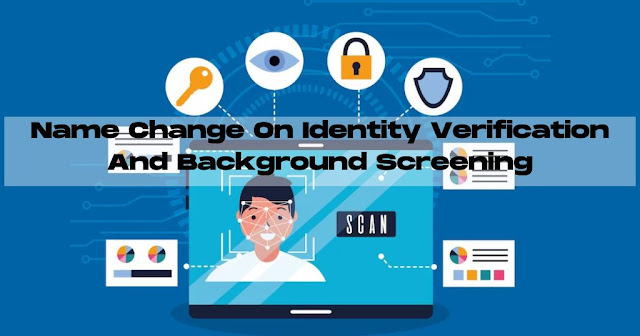Name Change And The Impact On Identity Verification And Background Screening In India
In India, a person's name is intricately linked to their identity and plays a significant role in various aspects of life, including official documents, educational qualifications, and employment records. However, there are situations when individuals may decide to change their names due to personal, cultural, or social reasons. While the right to change name is important for personal autonomy, it can have a significant impact on identity verification and background screening processes. In this blog, we will explore the implications of name changes on identity verification and background screening in India.
Understanding The Reasons For Name Change
Before delving into the impact of name changes, it is crucial to understand the reasons that drive individuals to take this step. Some common name change reasons include marriage or divorce, religious conversion, gender transition, escaping discrimination, or adopting a name that aligns better with one's identity. While these decisions are deeply personal, they can have wide-ranging consequences on various aspects of life.
Challenges In Identity Verification
Name changes can pose challenges during identity verification processes, especially if the change is not well-documented or communicated effectively. When an individual presents identification documents with a different name than what they originally had, it can raise suspicion and lead to delays in verification procedures. This becomes especially relevant when dealing with official documents like passports, driver's licenses, or Aadhaar cards (unique identification numbers issued by the Indian government).
Potential Implications For Background Screening
Background screening is a crucial process in various areas, including employment, housing, and financial transactions. Employers, landlords, and lending institutions often conduct background checks to assess an individual's credibility and trustworthiness. However, name changes can make these screenings more complex. If an individual's prior name is not properly linked to their new name in official records, it may result in incomplete or inaccurate background checks.
Addressing The Challenges
To mitigate the challenges arising from name changes, certain steps can be taken:
Legal Documentation: Individuals opting for a name change should ensure that they follow the legally prescribed procedures for the change name. This includes obtaining the necessary court orders or following the specific guidelines laid out by relevant authorities.
Updating Official Records: After a name change, individuals must promptly update their identification documents, educational certificates, and other relevant records to reflect the new name accurately. This will help streamline the verification process and prevent potential discrepancies.
Maintaining a Record Trail: Individuals should maintain a record trail of their name change, including court orders, newspaper publications, or any other relevant documentation. This trail can be helpful in providing evidence during verification or screening processes.
Employers and Agencies Sensitization: Employers, background screening agencies, and other relevant organizations should be sensitized to the possibility of name changes and the associated challenges. Awareness of this issue can lead to smoother verification processes and prevent inadvertent bias or discrimination.
Digital Identity Solutions: With the increasing adoption of digital identity solutions, blockchain-based identity verification systems, and biometric authentication, the impact of name changes on identity verification and background screening can be mitigated. These technologies can create more robust and secure identity ecosystems.
Conclusion
Name changes are an integral part of an individual's right to self-identity and autonomy. However, they can have a significant impact on identity verification and background screening processes in India. To ensure a seamless transition and avoid potential complications, individuals should follow the legally prescribed procedures for name changes and update their official records accordingly. Additionally, employers, screening agencies, and relevant organizations should adapt their processes to accommodate name changes sensitively and efficiently. By embracing the complexities of name changes, we can build a more inclusive and understanding society where individuals' identities are respected, regardless of their name changes.
Posted by Shivam Singh


